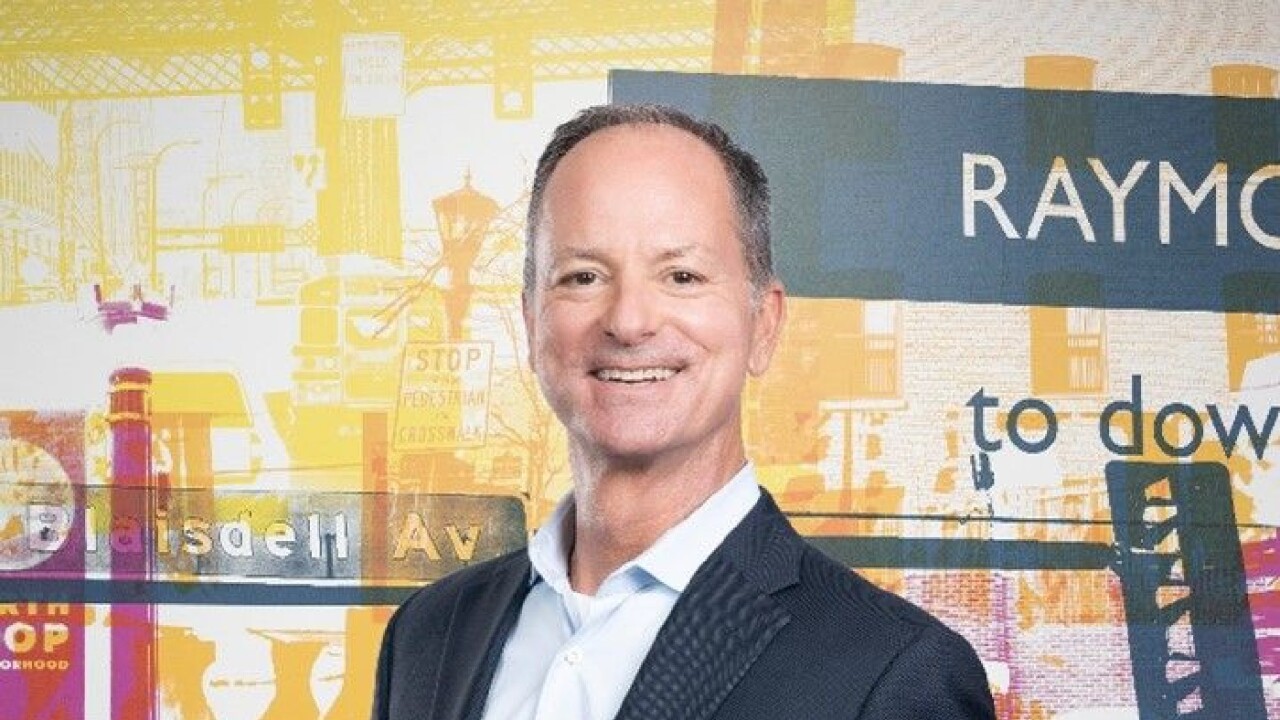Founded in 1971, First Data may not have the glow of being a trendy startup. But under the hood it has done much to keep up with the innovators.
The payment processor's
It's not the only company innovating on top of the older debit system.
"We're seeing a real explosion of digital payments, getting into anywhere anyone wants to do something different than the legacy card payments," said Steve Mott, principal of BetterBuyDesign, a Stamford, Conn.-based consulting firm.
"You really don't need the legacy infrastructure that the card payments guys provide, and they are having a hard time keeping up," Mott said. "The card brands either spend time trying to figure out how to make rules and charge fees for digital payments so they can maintain control, or they develop a strategy for working with other providers."
Digital payment routing for real-time transactions is a growing field, as evidenced by PayPal's deal this week to buy
First Data
At First Data, this strategy is playing out with its recent partnerships, including an agreement announced this week with Mastercard that allows companies using Mastercard business cards to engage in the Disburse-to-Debit gateway to make payments to employees' or customers' debit cards. First Data connects its gateway to Mastercard's MoneySend transaction pipe, a process similar to connecting to any of a number of debit networks the company is able to serve.
Mastercard benefits by being able to offer the real-time distribution and routing to its business customers, but also in hopes that the money is moving to Mastercard debit cards.
"The gateway was the impetus for the partnership with Mastercard, as those businesses or merchants have a need for initiating disbursements," said Nandan Sheth, general manager of global debit solutions at First Data.

Disburse-to-Debit generally targets payments in four key groups. One is non-salary income, such as investments, dividends, a 1099 worker in a marketplace, rental payments, medical trials or multi-level marketing programs.
Government disbursements also benefit from the gateway, allowing quick payment of federal and state tax refunds, government aid and assistance, disaster assistance or payments of any type to citizens.
Merchant disbursements would fall into the category of product rebates, store credits, incentives carried out through a branded marketing campaign, or refunds to customers. Companies making payments to employees could use the gateway to pay bonuses, expenses reimbursement or tuition reimbursement for those with continuing education programs.
"We are going after all of those categories," Sheth said. "We are thinking about all of the endpoints because we serve a lot of debit networks as well as Visa and Mastercard, as well as traditional ACH and all of the faster payments initiatives.
"We've been thinking about this as a company for many years," Sheth said. "We feel we have put together a program that highly differentiates itself because of the scale and the large customers that use the service."
Green Dot
Green Dot's SimplyPaid has its roots in the gig economy. It's the key technology underpinning the issuer's relationship with ride-sharing service Uber as a way to allow drivers to get paid daily, and it evolved into ways to to include benefits such as the option to open a Green Dot GoBank account for ATM use and to earn rewards.
"We have our own bank, so it is like an all-in-one service," said Helena Mao, general manager of Green Dot Network and money processing. "That is what is going to set us apart from the competition because we are not just a pipe that simply delivers a payment, we can innovate with our partners."

While the distribution of funds to debit or prepaid cards is a service that greatly benefits the gig economy, traditional employers are looking at a product like SimplyPaid to address other payment pain points, Mao said.
"With termination pay, the law says the terminated employee has to have a paycheck as they leave, and some companies are challenged with that, so it is an area in which SimplyPaid can be leveraged," she added.
Another new use case is occurring in the restaurant industry, where employees are often paid at the end of shifts with cash — and become targets for robbers in the parking lots of the restaurant as they leave.
"SimplyPaid puts the money directly into the account of the employee, and it keeps that employee safe," Mao said.
Green Dot is able to promote SimplyPaid as a complement to the company's other services, which initially were designed to serve the Green Dot bank card portfolio. Thus, SimplyPaid opens the door for numerous partnerships.
The competition for digital money movement has increased significantly in the past few years, but Green Dot sees a bright side to that.
"The good news is that the increasing of players in this space validates that we are doing the right thing," Mao said. "There is a need and more companies are becoming aware of what instant payments will mean to their businesses."
But there is so much activity taking place in real-time money movement, that one might need a scorecard to keep track.
"I see this whole digital payments field growing fast with just dozens of examples unfolding," BetterBuyDesign's Mott said. "The genie is coming out of the bottle, and you can't shut the bottle anymore."
And it will bring on major changes in the payments landscape over time, Mott added.
"People just want to get paid better and faster and don't want to hear about needing to support a bunch of issuers and acquirers," he said. "You just don't need all of the infrastructure in the middle when you can just do it digitally."





